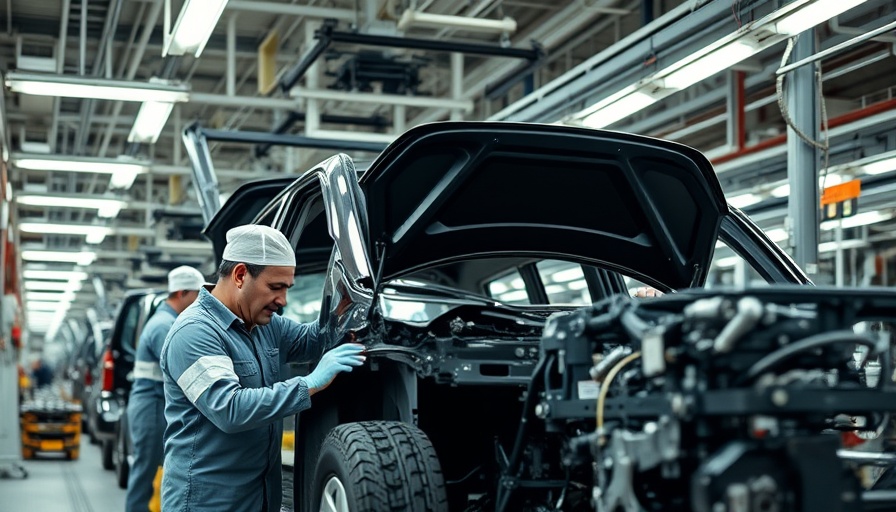
Auto Tariffs: A Continued Strain on the Industry
While many sectors may breathe a temporary sigh of relief from President Trump's recent 90-day pause on most tariffs, the automotive industry finds itself in a challenging bind. Specifically, the 25% tariffs on imported vehicles and auto parts remain in effect, casting a shadow over Detroit's Big Three automakers and the entire Michigan supply chain. This significant oversight has left industry leaders worried about ongoing price pressures and supply chain disruptions.
The Financial Impact on Michigan’s Auto Sector
Michigan, home to the heart of America’s automotive manufacturing process, is feeling the pinch of these sustained tariffs. The state's economy heavily relies on the automobile industry, and analysts are sounding alarms over a potential downturn. “It's like a gut punch,” commented Wedbush Securities analyst Dan Ives, emphasizing just how critical this period is for Detroit's carmakers. As production costs rise due to these tariffs, pressure mounts not only on manufacturers but potentially on consumers as well.
Global Tensions Heighten with China
The situation grows even more complex with escalating tensions between the U.S. and China. The recent decision to increase tariffs on Chinese goods, rising to 125%, could further restrict supply chains vital for American automakers. Morningstar analyst David Whiston stated that despite a temporary comfort from the tariff pause, the escalating conflict with China remains a formidable challenge for the U.S. automotive industry.
Uncertainty in Trade Agreements
The confusion doesn't end there; the U.S.-Mexico-Canada Agreement (USMCA) intended to protect compliant goods, has yet to offer clear guidelines. With Canada and Mexico also facing significant tariffs, this regulatory gray zone makes it difficult for automakers to plan for production and pricing strategies, increasing the uncertainty in the market.
The Tipping Point for Jobs and Prices
The United Auto Workers (UAW) union has voiced a mixed response to the tariffs, supporting them as a necessary tool to bring jobs back to the U.S. Nevertheless, higher costs could lead to potential layoffs in a delicate balancing act of protecting jobs while not pricing consumers out. Michigan Governor Gretchen Whitmer, during a speech in Washington, echoed the need for targeted trade policies that both support local job growth and mitigate consumer cost spikes.
Conclusion: Navigating the Future
As negotiations continue, it will be crucial for stakeholders in the automotive industry and policy makers to collaborate closely. Understanding the full implications of lasting tariffs will not only shape the future of automotive manufacturing in the Midwest but also the overarching economic landscape of the United States. The automotive industry's resilience is being tested, and how it maneuvers through this phase could set the tone for years to come.
 Add Row
Add Row  Add
Add 




Write A Comment